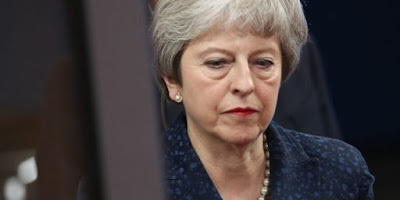 |
Brexit: Theresa May's deal is voted down in historic Commons defeat
|
LONDON, JAN 16 - Prime Minister Theresa May's Brexit deal has been rejected by 230 votes - the largest defeat for a sitting government in history.
MPs voted by 432 votes to 202 to reject the deal, which sets out the terms of Britain's exit from the EU on 29 March.
Labour leader Jeremy Corbyn has now tabled a vote of no confidence in the government, which could trigger a general election.
The confidence vote is expected to be held at about 1900 GMT on Wednesday.
The defeat is a huge blow for Mrs May, who has spent more than two years hammering out a deal with the EU.
The plan was aimed at bringing about an orderly departure from the EU on 29 March, and setting up a 21-month transition period to negotiate a free trade deal.
The UK is still on course to leave on 29 March but the defeat throws the manner of that departure - and the timing of it - into further doubt.
MPs who want either a further referendum, a softer version of the Brexit proposed by Mrs May, to stop Brexit altogether or to leave without a deal, will ramp up their efforts to get what they want, as a weakened PM offered to listen to their arguments.
Laura Kuenssberg: May's nightmare
History was made tonight with the scale of this defeat - a higher figure than the wildest of numbers that were gossiped about before the vote.
But the prime minister's dilemma is a more serious version of the same it's always been.
She has no majority of her own in Parliament to make her middle way through stick.
And her many critics don't agree on the direction she should take - a more dramatic break with the EU, or a tighter, softer version.
Those two fundamental and clashing positions have always threatened to pull her and the government apart.
The Brexit debate has cut across traditional party lines.
Some 118 Conservative MPs - from both the Leave and Remain wings of her party - voted with the opposition parties against Mrs May's deal.
And three Labour MPs supported the prime minister's deal: Ian Austin (Dudley North), Kevin Barron (Rother Valley) and John Mann (Bassetlaw).
The most controversial sticking point was the issue of the Northern Irish backstop - the fallback plan to avoid any return to physical border checks between the country and Ireland.
Mrs May had hoped new assurances from EU leaders this week, saying the backstop would be temporary and, if triggered, would last for "the shortest possible period", would help her garner more support.
But in the debate leading up to the vote, members from all sides of the House said the move did not go far enough.
=====================






